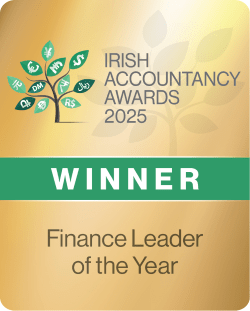
Securing a comfortable retirement is a goal that many of us share, and planning for it is crucial. Pensions play an important role in achieving this goal, providing a steady income stream during our golden years. In Ireland, the pension system is governed by a set of rules and regulations that can sometimes seem complex and overwhelming. This blog aims to simplify the process of auto-enrollment pensions in Ireland, covering various aspects such as the state pension, auto-enrollment schemes, contribution requirements, and eligibility criteria.
What are the rules for pensions in Ireland?
The government and regulatory agencies in Ireland have established a number of rules and regulations related to pensions. These rules govern the types of pension schemes available, contribution limits, tax implications, and more. In Ireland, there are several types of pension schemes, including:
Occupational Pension Schemes:
These are pension plans provided by employers to their employees. They can be either defined benefit schemes, where the pension amount is based on the employee’s salary and years of service, or defined contribution schemes, where the pension amount depends on the contributions made and investment returns.
Personal Retirement Savings Accounts (PRSAs):
These are individual pension plans that can be set up by anyone, including self-employed individuals and employees whose employers do not offer an occupational pension scheme.
Retirement Annuity Contracts (RACs):
Similar to PRSAs, these are individual pension plans designed for self-employed individuals or those with non-pensionable income.
State Pension:
The Irish government provides a state pension to eligible individuals who have made the required Pay Related Social Insurance (PRSI) contributions throughout their working life.
Each of these pension schemes has its own set of rules and regulations regarding contribution limits, tax benefits, and retirement age, among other factors. It’s essential to understand these rules and seek professional advice to make sure that you are making the most of your pension planning.
How do I qualify for the state pension in Ireland?
To qualify for the state pension, you must meet specific eligibility criteria based on your age and PRSI contribution history.
- Age Requirement: The current qualifying age for the state pension in Ireland is 66 years. However, this age is set to increase gradually over the coming years, reaching 67 in 2028 and 68 in 2039.
- PRSI Contributions: To receive the maximum state pension, you must have made PRSI contributions for at least 40 years. If you have fewer than 40 years of contributions, you may still be eligible for a reduced state pension amount based on your contribution record.
There are different types of PRSI contributions, and the specific requirements may vary depending on your employment status (e.g., employee, self-employed, or a combination of both). It’s important to keep track of your PRSI contributions throughout your working life to make sure that you meet the eligibility criteria for the state pension.
Voluntary contributions PRSI
If you are not working, such as on maternity leave from a self-employed position. It is recommended that you continue to pay your PRSI contributions. To do so, submit Form VC1 to the Department of Social Protection. This guarantees that you will continue to pay the minimal PRSI contribution regardless of whether you are employed.
What is Auto Enrolment Ireland 2024?
Auto Enrolment Pensions Ireland 2024 is a government initiative aimed at increasing pension coverage and encouraging more people to save for their retirement. This initiative will require employers to automatically enroll their employees in a pension scheme and make contributions on their behalf unless the employee actively opts out. The main goals of Auto Enrolment Ireland 2024 are:
- Increasing Pension Coverage: By making enrollment automatic, the initiative aims to increase the number of people contributing to a pension plan, particularly among those who may not have previously considered it or found the process confusing.
- Encouraging Retirement Savings: The initiative intends to create a culture of long-term savings and financial readiness for retirement by making payments mandatory for both companies and employees.
- Reducing the Burden on State Pensions: The plan intends to reduce the future load on the state pension system by encouraging more people to save their own retirement funds.

When does pension auto-enrolment start?
The rollout of Auto Enrolment Ireland 2024 was scheduled to begin in January 2024 already and will be phased in over several years. The specific timeline and implementation phases are as follows:
- Phase 1 (January 2024): Employers with more than 500 employees will be required to enroll their eligible employees in a qualifying pension scheme.
- Phase 2 (January 2025): Employers with between 150 and 499 employees will be required to enroll their eligible employees.
- Phase 3 (January 2026): Employers with between 50 and 149 employees will be required to enroll their eligible employees.
- Phase 4 (January 2027): Employers with fewer than 50 employees will be required to enroll their eligible employees.
It’s important to note that these dates are subject to change, and employers and employees should stay informed about any updates or revisions to the implementation timeline.
Auto Enrolment Pension Contributions
Under the Auto Enrolment Pensions Ireland 2024 scheme, both employees and employers will be required to make contributions to the pension plan. The contribution rates are as follows:
- Employee Contributions: Employees will be automatically enrolled and required to contribute a minimum of 1.5% of their gross salary to the pension scheme. This contribution rate may be increased over time, subject to government review and approval.
- Employer Contributions: Employers will be required to make a mandatory contribution of at least 1.5% of the employee’s gross salary to the pension scheme. This contribution rate may also be subject to future increases.
It’s important to note that these are the minimum contribution rates, and both employees and employers may choose to contribute more than the required amounts, subject to the applicable contribution limits and tax implications.
Maximum Employer Pension Contributions
While employers are required to make minimum contributions under the Auto Enrolment Ireland 2024 scheme, there are also maximum limits on the amount of contributions they can make to an employee’s pension plan. These limits are in place to ensure that pension contributions do not become an excessive tax burden for employers.
The maximum employer pension contribution is typically based on a percentage of the employee’s salary or a fixed monetary amount, whichever is lower. The specific limits may vary depending on the type of pension scheme and the tax rules in effect at the time.
It’s crucial for employers to be aware of these limits and to consult with financial advisors or tax professionals to ensure compliance with the relevant regulations. Exceeding the maximum employer pension contribution limits can result in tax penalties or the loss of certain tax benefits associated with pension contributions.
Who is eligible for auto-enrolment?
The Auto Enrolment Ireland 2024 scheme has specific eligibility criteria for both employees and employers. These criteria are designed to ensure that the initiative reaches its intended target audience and achieves its goals of increasing pension coverage and promoting retirement savings.
Employee Eligibility:
- Age: Employees between the ages of 23 and 60 will be automatically enrolled in a qualifying pension scheme.
- Earnings: Employees must earn above a certain threshold, currently set at €20,000 per year, to be eligible for automatic enrollment.
- Employment Status: Both full-time and part-time employees are eligible, provided they meet the age and earnings criteria.
Employer Eligibility:
- Size: Employers of all sizes, from large corporations to small businesses, will be required to participate in the auto-enrollment scheme, subject to the phased implementation timeline.
- Industry: The auto-enrollment scheme applies to employers across all industries and sectors, with few exceptions.
There may be certain exemptions or special considerations for specific groups, such as those with existing pension arrangements, self-employed individuals, or employees nearing retirement age. It’s essential for both employees and employers to understand the eligibility criteria and seek professional guidance if they have any questions or concerns.
At Around Finance, we understand the importance of pension planning and are committed to helping our clients achieve their financial goals. Whether you’re an individual seeking guidance on personal pension options or a business owner navigating the complexities of auto-enrollment, our team of experienced financial advisors is here to assist you every step of the way.
Don’t hesitate to contact us for personalised assistance with pension planning and enrollment. Our experts will provide tailored advice and strategies to help you maximise your retirement savings and ensure a comfortable future. Take control of your financial future today by partnering with Around Finance.
References
- The Pensions Authority: https://www.pensionsauthority.ie/
- Citizens Information: https://www.citizensinformation.ie/en/money_and_tax/personal_finance/pensions.html
- Revenue Commissioners: https://www.revenue.ie/en/jobs-and-pensions/pensions/index.aspx
- Department of Employment Affairs and Social Protection: https://www.gov.ie/en/organisation/department-of-employment-affairs-and-social-protection/
FAQ
A program that automatically enrolls eligible employees into a pension scheme.
Expected late 2024 or early 2025 (official date to be confirmed).
Yes, after six months with a two-month window to claim contributions. You can re-enroll later.
Your auto-enrolment pension is portable and can be transferred when changing employers.
Some employees may be exempt from auto-enrollment due to existing pension arrangements, low earnings, or other specific circumstances.
Yes, employer pension contributions under auto-enrolment are tax deductible as a business expense.
Still got questions? Let us know what you’re looking for.











